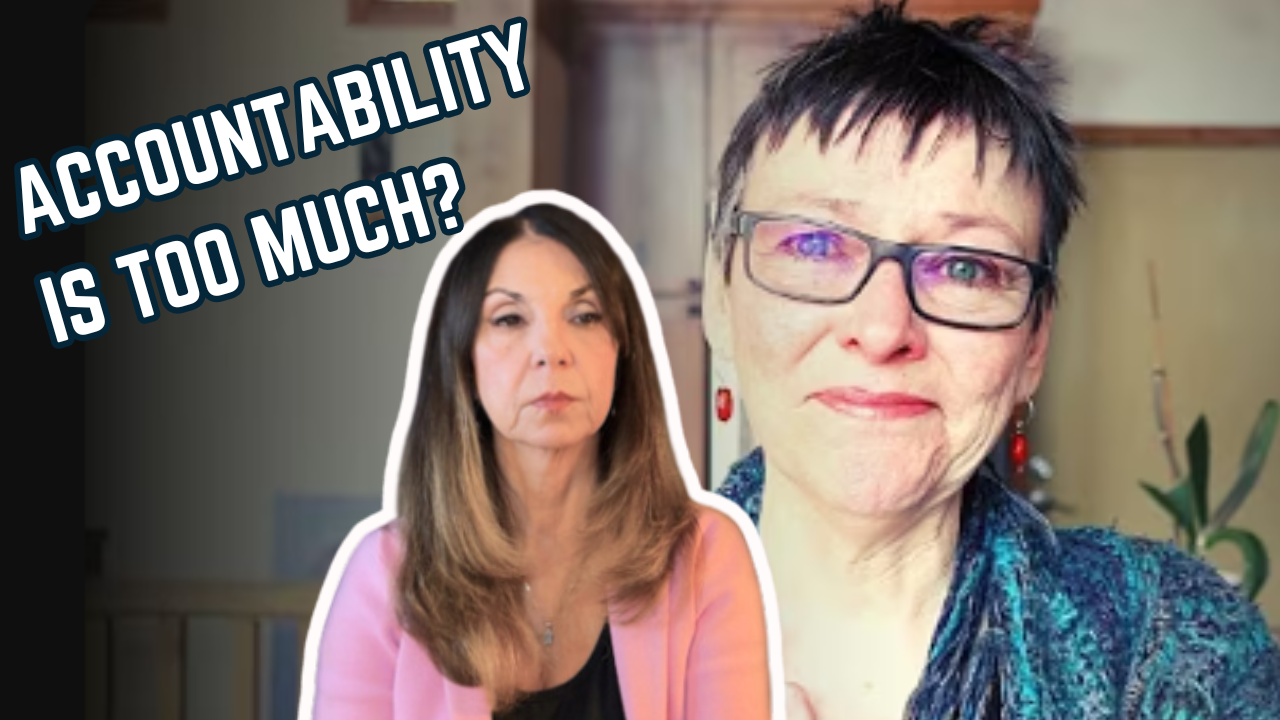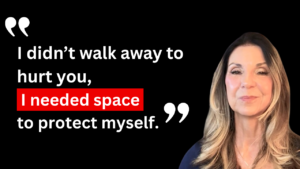In my latest video, I explore a problematic yet necessary topic: the importance of accountability in repairing ruptured relationships between parents and their estranged adult children. As a licensed clinician and an experienced parent, daughter, and sibling, I understand how deeply painful estrangement can be. It’s heartbreaking, complex, and often filled with grief. However, the path to reconciliation requires more than just enduring the pain; it demands self-reflection, accountability, and the willingness to change.
This video may be uncomfortable to watch. It challenges parents to look inward, reflect on their actions, and take responsibility for the role they may have played in the estrangement. But this discomfort is necessary for growth. My content is meant to educate and guide families with the hope of reconciliation. Too often, I see well-meaning advice from people who haven’t taken responsibility for their actions, bypassing crucial steps like validating others’ feelings or expressing genuine remorse.
Proper repair in estranged relationships involves acknowledging a problem and understanding that both sides are hurt. It requires parents to own up to their actions, sincerely apologize, and try to understand how their behavior impacted their child. Even when there is no contact, parents can deeply self-reflect and prepare for a potential opportunity to reunite. This level of accountability is not about self-blame but about taking proactive steps to restore trust and rebuild the relationship.
The Cost of Avoiding Accountability: A Real-Life Example
In this video, I share the story of Diane and her daughter, Haley. Diane believes their estrangement is due to political differences, conveniently overlooking other reasons Haley expressed in a heartfelt letter. Haley wrote about feeling gaslit, mentally harmed, and deeply affected by her parents’ actions. Despite the pain it caused, this letter invited Diane to self-reflect and initiate healing.
Unfortunately, Diane made several critical mistakes that many parents unknowingly repeat. First, she didn’t take accountability. Instead, she focused on political disagreements and ignored the deeper issues her daughter brought up. This is a common misstep—dismissing your child’s pain as a one-off or unrelated to you prevents growth and healing. As painful as it is, these communications are opportunities for self-reflection and reconciliation.
It’s natural to feel grief and shock when confronted with your child’s perspective, mainly if it includes accusations of harm or neglect. But it’s crucial not to get stuck in this grief. Diane’s refusal to move past her pain and take accountability ultimately blocked her chance at reconciliation. If she had acknowledged her daughter’s pain and sincerely apologized, there might have been a different outcome.
Respecting Boundaries: Essential for Repair
Another crucial mistake Diane made was ignoring her daughter’s explicit request for no contact. Despite being told not to reach out, Diane continued to send messages, including birthday greetings and personal growth content. She rationalized her behavior by believing, “That’s what moms are supposed to do.”
This is where many parents falter. They see reaching out as an act of love, but to the estranged child, it feels like a violation of boundaries and a lack of respect for their needs. Adult children repeatedly report that their concerns went unheard before they made the painful decision to go no contact. Ignoring their requests only reinforces this feeling of being unheard and disrespected.
One of the most common desires estranged adult children express is the need to feel heard, receive a genuine apology, and have their boundaries respected. If you want to repair a ruptured relationship, respecting boundaries is non-negotiable. It’s about demonstrating empathy and a willingness to change, even if it feels counterintuitive to parental instincts.
The Danger of Defensiveness and Denial
A significant barrier to accountability is the tendency to become defensive or deny wrongdoing. Diane repeatedly rationalized her actions, using phrases like “I did the best I could” and blaming her daughter’s reactions on political intolerance or mental health issues. This deflection prevented her from fully acknowledging her role in the estrangement.
This defensive posture is understandable; no one wants to feel like they failed as a parent. But defensiveness blocks growth and healing. It invalidates the adult child’s feelings and experiences, making reconciliation almost impossible. Admitting that your actions hurt your child doesn’t negate the love and effort you invested in raising them. It shows courage, growth, and an unwavering commitment to repairing the relationship.
Public Comments and Emotional Retaliation: Fueling the Fire
Another critical mistake Diane made was publicly discussing her pain and anger, even describing her daughter as “robotic” and emotionally distant. This public airing of grievances was hurtful and damaging to any chance of reconciliation. It painted her daughter in a negative light, potentially deepening the rift.
If you want to reconnect, keeping public comments neutral and avoiding retaliation is essential. Anger and bitterness are natural emotions, but processing them privately or with a trusted therapist is far more productive than sharing them publicly.
When Given a Roadmap, Use It
Diane stumbled upon a valuable resource, Dr. Joshua Coleman’s book on estrangement. However, she dismissed his guidance on writing a Letter of Amends, viewing it as too contrite and implying parental fault. This resistance to taking responsibility cost her a valuable opportunity to begin rebuilding trust with her daughter.
Coleman’s work emphasizes that repair requires parents to acknowledge their child’s pain, even if they didn’t intend to cause it. It’s about validating their experience and committing to change. Estrangement is rarely about one event or action; it’s usually the result of repeated patterns that erode trust over time. Owning up to your role in that dynamic is a decisive step toward reconciliation.
It’s Never Too Late to Self-Reflect
Diane’s story is heartbreaking, but it’s also a lesson in the cost of avoiding accountability. Two and a half years later, she is still estranged from her daughter, lost in grief and anger. Yet, it’s never too late to self-reflect. Parents can always choose to stop deflecting and start taking responsibility for their role in the estrangement.
If you’re a parent in a similar situation, consider this an invitation to look inward. How can you validate your child’s experience without losing your self-worth? How can you apologize sincerely without feeling like you’re conceding to blame? It’s about growth, not self-condemnation.
Moving Forward with Hope and Accountability
This video was difficult to create because it challenged parents to do the hard work of self-reflection and accountability. But it’s necessary if reconciliation is the goal. As parents, we are called to model growth, empathy, and responsibility. It’s not about perfect parenting; it’s about being willing to repair the damage when it occurs.
Estrangement is complicated, and every family’s situation is unique. However, the common thread in most reconciliations is accountability. If you’re struggling with estrangement, consider seeking professional help to process your pain, understand your role, and learn how to take steps toward healing.
No one deserves to be mistreated or abused, but if there is a rift in your family, ignoring the problem or deflecting blame won’t help. I know these conversations are painful but necessary for healing and reconciliation. If you’re ready to take that step, I’m here to guide you.
Stay strong, stay hopeful, and remember, it’s never too late to take responsibility and begin the repair process.
If you’re navigating the pain of estrangement and want support on your journey to healing, feel free to reach out or explore my other resources. As a licensed clinician and experienced estrangement coach, I’m here to help you take those first steps toward accountability and reconciliation.









